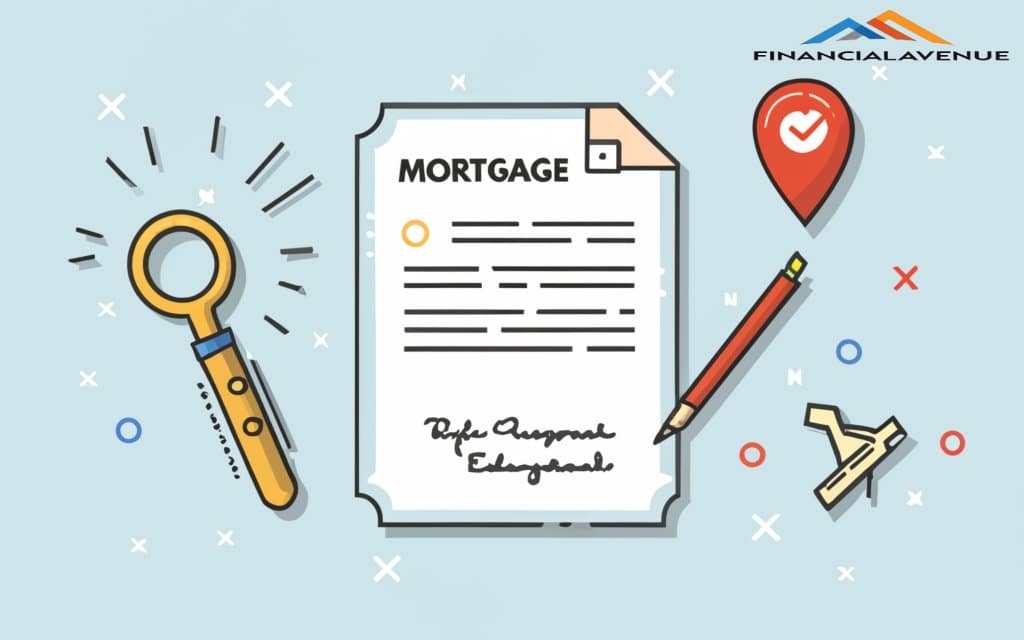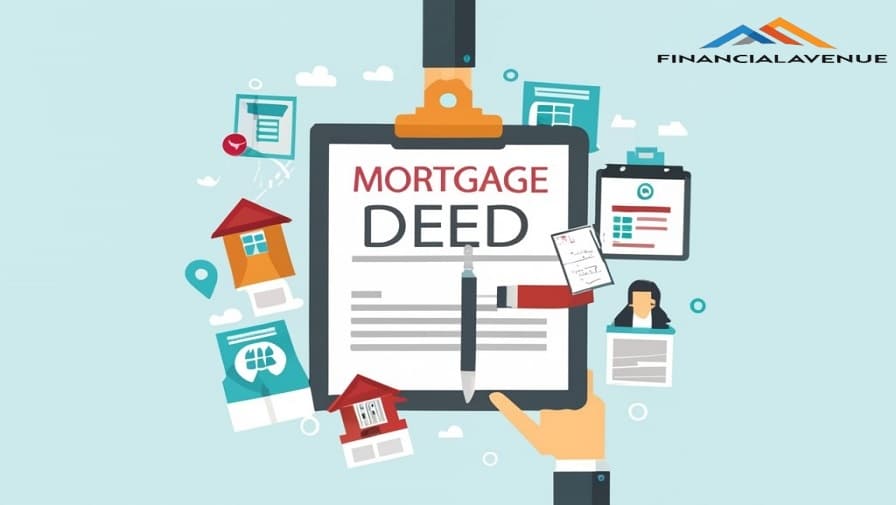A mortgage deed is a critical legal document that serves to secure a loan against a property. It formally sets out the terms and conditions between a lender and a borrower for the financing of a property. By clarifying details around repayment schedules, interest rates, and consequences of default, a mortgage deed protects the interests of both parties involved.
For buyers, understanding what a mortgage deed entails is key to making informed decisions when taking out a loan. This guide provides a comprehensive overview of mortgage deeds, including what they are, how they work, why they matter, and common questions around them.
What Exactly is a Mortgage Deed?
A mortgage deed, sometimes called a legal charge, is an agreement that gives the lender rights over the property if the required loan payments are not met. This type of borrowing agreement effectively uses the property as security or collateral for the loan.
It is referred to as a “deed” because it is a legal document that must be formally signed and witnessed to be valid. Once signed, the mortgage deed is then registered with the Land Registry as a lien against the property.
The two main parties involved are:
- Borrower: The property owner taking out the mortgage loan.
- Lender: Usually a bank, building society, or other mortgage provider that is financing the purchase.
In the deed, the borrower legally commits to repaying the loan as per the outlined loan conditions. This includes sticking to the detailed repayment schedule and keeping up with interest payments based on the initial fixed rate and any ongoing variable rates afterwards.
Are you wondering to know how many boxes you will need to move house? Then read this article.
Key Sections of a Mortgage Deed
While specific details can vary, most mortgage deeds contain the following key sections:
Property Description
This clearly identifies the property by including the full address, land registry reference number, and a detailed description of the boundaries. It confirms the borrower’s ownership and rights to use the property as security for the loan.

Loan Details
This section lays out the lending terms agreed between lender and borrower. It specifies the amount being borrowed, the repayment period, interest rates charged, and the regular repayment amount needed to pay off the loan within the set timeframe.
Consequences of Default
If the borrower fails to keep up repayments as per the mortgage terms, this section gives the lender certain rights. These usually include the ability to take possession of the property and sell it to recover the outstanding loan amount.
Read this article if you wondering What Does “Let Agreed” Mean In Property?
How Do Mortgage Deeds Work?
Once a mortgage loan is approved, a mortgage deed needs to be signed by the borrower before funds can be released. There is a multi-step process around creating, registering, and managing an active mortgage deed.
Registration
The signed document must be registered with the Land Registry to place a formal charge against the property. This involves paying the relevant fees and can take up to a few weeks to fully process.
Ongoing Responsibilities
After registration, the borrower must stick to the agreed repayment schedule and interest obligations outlined in the deed. Meanwhile, the lender must remove the charge once the mortgage has been fully paid off.
Remortgaging
If looking to switch deals, borrowers can take out a remortgage with a new lender. The new lender pays off the old mortgage, while the borrower takes on a new loan under updated terms.
Why Do Mortgage Deeds Matter?
Mortgage deeds play a pivotal role in securing financing for property purchases. Here are some key reasons why they are so important:
Lender Protection
Registering a mortgage deed significantly reduces risk for lenders. By securing the debt against an asset, it prevents borrowers from selling the property without repaying outstanding loan amounts. This enables lenders to reclaim the property if the borrower defaults.
Clarifying Obligations
The mortgage deed makes obligations clear for both parties from the outset. This avoids potential disputes down the line about repayment schedules, interest calculations, fees due, and other terms.
Legal Evidence
As a legally binding document, the registered mortgage deed serves as conclusive proof of the loan in case of any disagreements. This gives the lender strong legal grounds to recover sums owed or repossess the property if needed.
Frequently Asked Questions
Who keeps the original mortgage deed?
The lender usually retains the original signed mortgage deed as evidence of the legally binding loan. Borrowers instead keep a certified copy for their records.
What happens if the mortgage deed is lost?
As the Land Registry has an official record of the deed, a lost copy can be replaced by ordering a duplicate from them. This shows why registering the deed is so important.
Can we change a mortgage deed?
Most terms cannot be altered after signing, apart from changes to repayment details if remortgaging. However, early repayment charges outlined in the deed would still apply if paying off the loan early.
Is a mortgage deed different from title deeds?
Yes – title deeds prove ownership, while a mortgage deed specifically relates to loan obligations tied to the property. Homeowners keep title deeds, while mortgage deeds are held by lenders.
Conclusion
In summary, a mortgage deed is a signed legal agreement between borrower and lender that sets out a loan’s terms and conditions. It formally secures the debt against the property being purchased.
Registering a mortgage deed protects the interests of both parties involved. For lenders, it guarantees they can recover their investment if repayments stop. For borrowers, it provides evidence of obligations owed so disputes can be avoided.
Understanding mortgage deed basics is key for anyone looking to finance property through secured lending. This guide covers fundamentals like what they involve, how they work, and why properly executed mortgage deeds matter so much.
Hopefully this breakdown gives you a clearer picture of what mortgage deeds entail. For specific advice tailored to your situation, be sure to consult professional mortgage advisers or solicitors.

Daniel, a seasoned professional with over 5 years of experience in banking, property, and finance, brings a wealth of expertise to the table. This authoritative blog is meticulously curated to provide you with the most up-to-date financial insights. Delving into the dynamic realms of banking and mortgages, Daniel’s passion for finances shines through every post.










